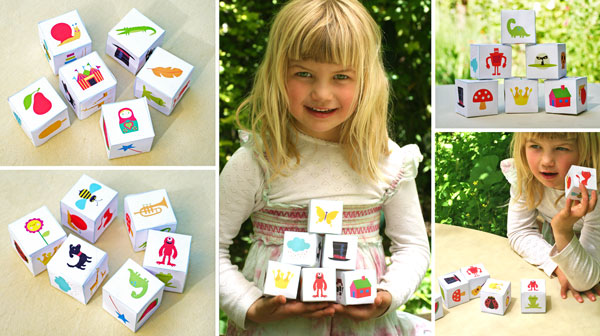Storytelling Games
Introduction to Storytelling Games
Storytelling has been an integral part of human culture for centuries. It has evolved from oral traditions to written literature and, in modern times, into interactive storytelling games. These games allow players to create, shape, and experience stories in dynamic and immersive ways. Whether played online, through tabletop role-playing games (RPGs), or as party games, storytelling games encourage imagination, critical thinking, and collaborative creativity.
In this comprehensive guide, we will explore different types of storytelling game, their benefits, and how they have become a popular medium for entertainment, education, and personal expression. We will also highlight some of the best storytelling games available today. If you’re a gaming enthusiast, check out GamesView.shop for the latest gaming experiences and storytelling-based titles.
What Are Storytelling Games?
Storytelling game are a genre of games where the primary focus is on narrative development and player-driven storytelling. Unlike traditional video games that follow linear storylines, storytelling games allow players to make choices that shape the plot and its outcome. These games can be played in various formats, including:
- Tabletop RPGs (Role-Playing Games)
- Digital Narrative Games
- Interactive Fiction
- Party Storytelling Games
- Improvisational and Verbal Games
Each format offers a unique experience, catering to different player preferences and storytelling styles.
Types of Storytelling Game
1. Tabletop Role-Playing Games (TTRPGs)
Tabletop RPGs, such as Dungeons & Dragons (D&D), are among the most well-known storytelling games. These games involve a Game Master (GM) who guides the story, while players create characters and make decisions that influence the narrative.
Popular TTRPGs:
- Dungeons & Dragons (D&D) – The classic RPG that has inspired generations of storytellers.
- Call of Cthulhu – A horror-mystery RPG based on H.P. Lovecraft’s works.
- Pathfinder – A fantasy RPG with rich world-building and customization.
- FATE Core System – A flexible RPG system that allows for creative storytelling across various settings.
2. Digital Narrative Games
These games utilize digital platforms to create interactive experiences where players make choices that affect the story. They often feature rich narratives and multiple endings.
Top Digital Storytelling Games:
- Life is Strange – A choice-based adventure game with deep emotional storytelling.
- The Walking Dead (Telltale Games) – A dramatic, choice-driven game set in the zombie apocalypse.
- Detroit: Become Human – A sci-fi narrative where players control androids navigating ethical dilemmas.
- Firewatch – A mystery game that blends beautiful environments with engaging storytelling.
3. Interactive Fiction & Text-Based Games
Interactive fiction games rely heavily on text-based storytelling, where players read through a story and make choices that determine the outcome.
Examples of Interactive Fiction:
- 80 Days – A steampunk-inspired adaptation of “Around the World in 80 Days.”
- Choice of Games Series – A collection of text-based RPGs with diverse themes.
- Zork – One of the earliest and most influential text adventure games.
4. Party Storytelling Games
These are casual games designed for social gatherings where players contribute to building a collaborative story.
Fun Party Storytelling Games:
- Once Upon a Time – Players create fairy tale narratives using story cards.
- The Storymatic – A card-based game that sparks creativity with random story prompts.
- Gloom – A dark humor card game where players narrate the tragic fate of their characters.
5. Improvisational & Verbal Storytelling Games
These games focus on spontaneous storytelling, often requiring creativity and quick thinking.
Classic Verbal Storytelling Game:
- Exquisite Corpse – Players take turns adding to a story without seeing previous contributions.
- The One-Word Story Game – A collaborative story where each player contributes one word at a time.
- Story Cubes – Dice-based storytelling using pictorial prompts.
Benefits of Storytelling Games
1. Enhancing Creativity
Storytelling games challenge players to think imaginatively, create unique narratives, and develop characters.
2. Improving Social Skills
These games encourage collaboration, teamwork, and communication, making them great for social bonding.
3. Developing Problem-Solving Abilities
Players face challenges and obstacles that require creative solutions, enhancing their problem-solving skills.
4. Encouraging Literacy & Language Development
For younger players, storytelling games promote vocabulary building, reading comprehension, and writing skills.
5. Offering Emotional & Psychological Benefits
Engaging in storytelling can be therapeutic, providing an outlet for self-expression and stress relief.
How to Get Started with Storytelling Games
1. Choose a Format That Suits You
Decide whether you prefer tabletop RPGs, digital games, or casual party storytelling games.
2. Gather a Group (or Play Solo!)
Many storytelling games are multiplayer, but there are also great solo options for those who prefer individual storytelling.
3. Use Storytelling Tools
If you’re struggling with ideas, tools like story dice, writing prompts, and digital generators can help spark creativity.
4. Explore New Games Regularly
The storytelling game landscape is constantly evolving. Visit GamesView.shop to stay updated on new releases.
Conclusion
Storytelling game provide an engaging and interactive way to experience narratives, whether through digital games, tabletop RPGs, or verbal storytelling activities. These games are not just about entertainment; they enhance creativity, social skills, and cognitive abilities. Whether you’re a veteran gamer or a beginner, there’s a storytelling game for you. Explore different formats, gather your friends, and start weaving incredible tales today!
For the latest storytelling games and gaming accessories, visit GamesView.shop and elevate your gaming experience.
